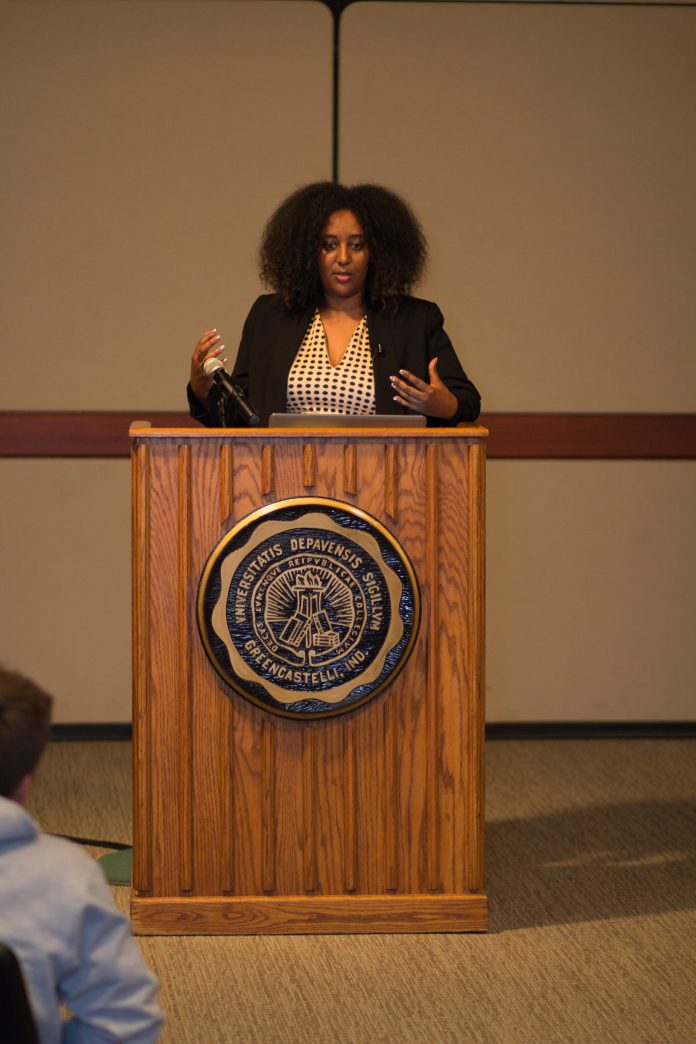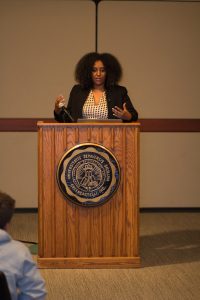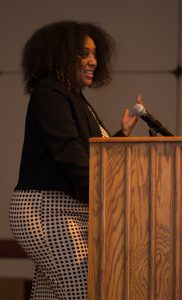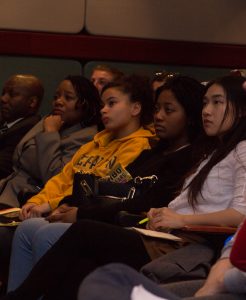
In honor of Black History Month, Menna Demessie, Congressional Black Caucus Foundation’s Vice President of Policy and Research, discussed the continued prevalence of race in the United States to a packed room in Watson Forum on Feb. 19.
The Africana Studies Department chose Demessie as this year’s speaker due to her impressive accomplishments. Demessie attended Oberlin College, where she majored in Economics and Law and Society. After that, she attended the University of Michigan and earned a joint doctorate in Public Policy and Political Science, as well as a certificate in African American, African and Black transnational studies.
Demessie, senior class president during her time at Oberlin, classifies her ability to be a leader on campus as a privilege; however, she still faced great adversity during her college years. "If in my atypical experience, with my privilege, I'm dealing with [racism],” Demessie said. “What does that mean for the average Joe?”
A child of two Ethiopian immigrants, Demessie learned more about her culture during her middle school years. She would seek out books about Black history from the school library, until she realized that the library did not have any books on this subject. Demessie repeatedly asked for these books each week, until the books were finally available in the school library.
Demessie found many similarities between her own experiences and those portrayed in the new movie “Black Panther.” “So many things I can trace to my experience and my parents experience.”
A cinematic milestone for the Black community, the majority black cast portrayed powerful superheroes with high morals. “Last week reflects what it feels like to see mainstream media include rich diversity,” Demessie said. “In what mainstream movie have you ever seen anything like this? I haven’t. Not in my lifetime.”
After urging everyone in the audience to see the film, Demessie said that racism continues to be a taboo topic; however, it is an important and necessary one. “Denying racism is the new racism,” Demessie said. “Silence is no longer acceptable when talking about racial equity.”
People of color are not the only ones that should be talking about racism, Demessie said.
“It is not a black issue, it is an American issue,” Demessie said. “You’re not going to educate everybody on this issue, but you can educate yourself and those around you.”
The hour and a half long talk examined the paradox of racial progress and public policy to answer the question of why race and racism still matter and what to do about it.
Demessie then proposed the question “Do race-based problems require a race-based solution?”
Professor Clarissa Peterson, a member of the Africana studies steering committee who headed the event said, “We keep throwing out other solutions and as a result, the problem morphs into something else because we don’t answer race-based problems with race-based solutions.”
Philosophy professor Emily McWilliams claims that Demessie brought an invaluable perspective to DePauw’s faculty and students. “In my view, part of DePauw’s purpose as a liberal arts institution is to help students gain a deeper understanding of how history, psychology, and sociology shape the social and political landscape that we live in,” McWilliams said. “And of how to become leaders in moving through that landscape, towards racial justice.”
According to Peterson, one way to fight against racism is to acknowledge its existence. “Racism continues to permeate in our society,” Peterson said. “It has always existed and continues to do so. The most dangerous behavior in the world is to pretend that it doesn’t exist.”



